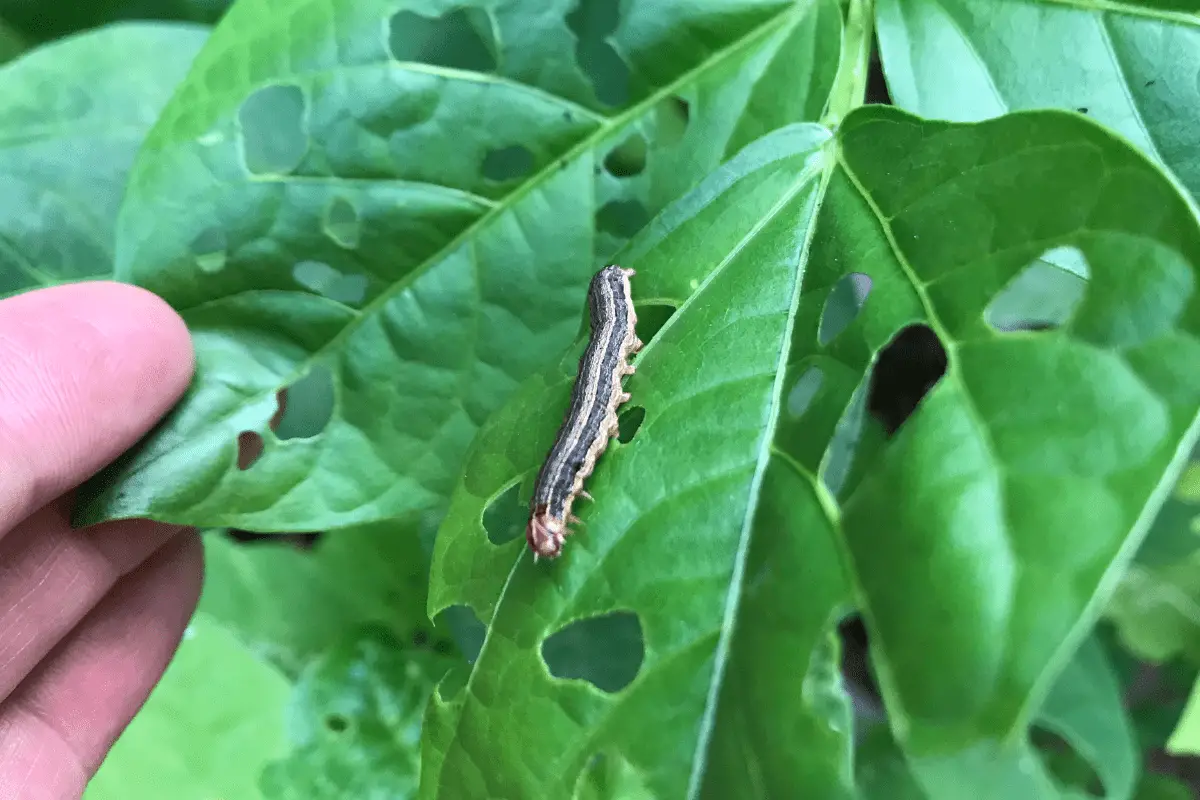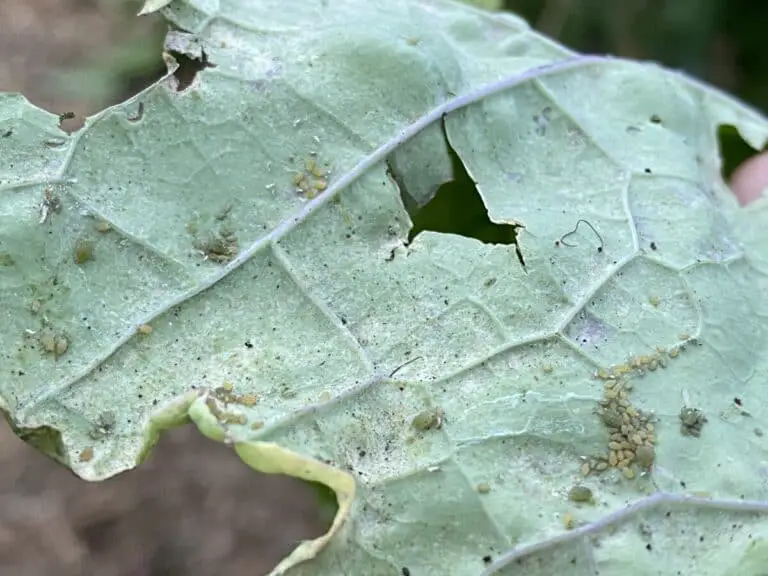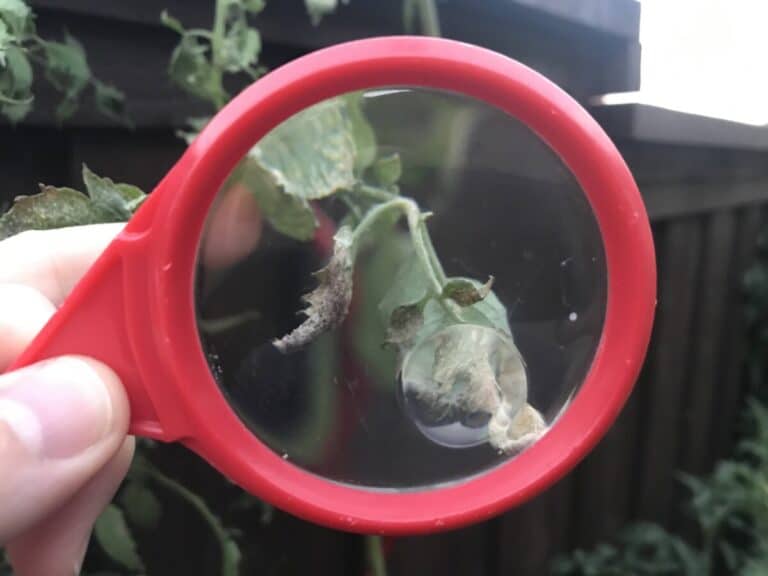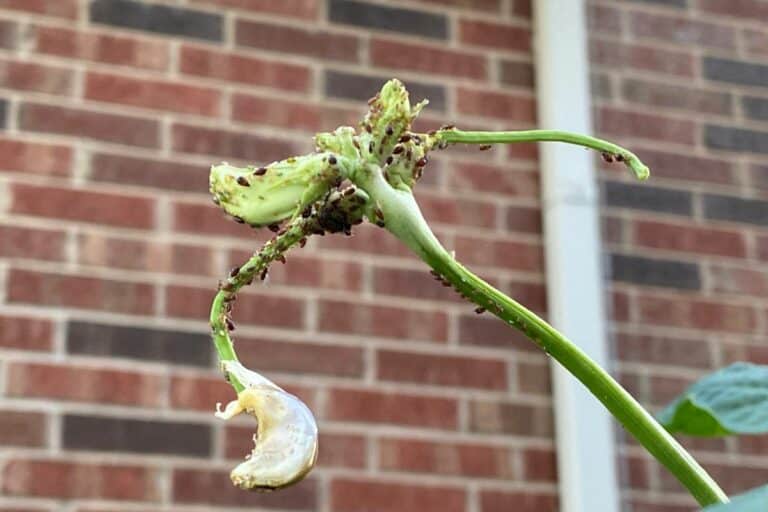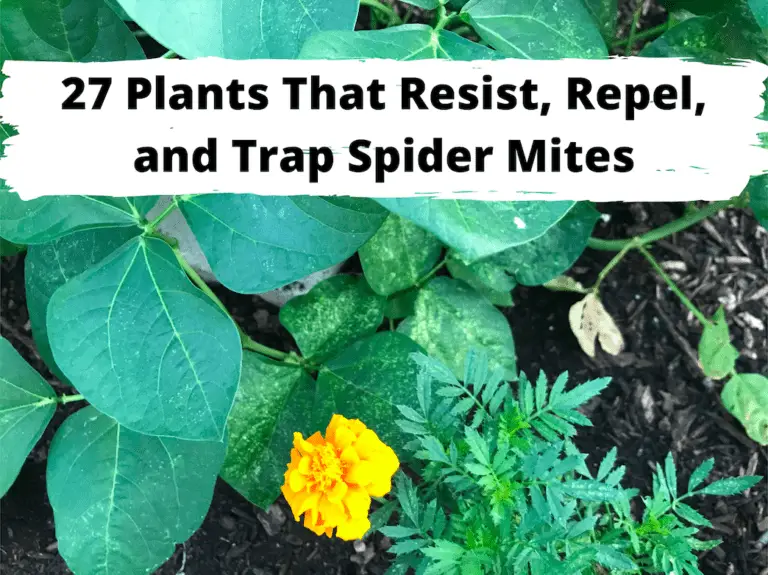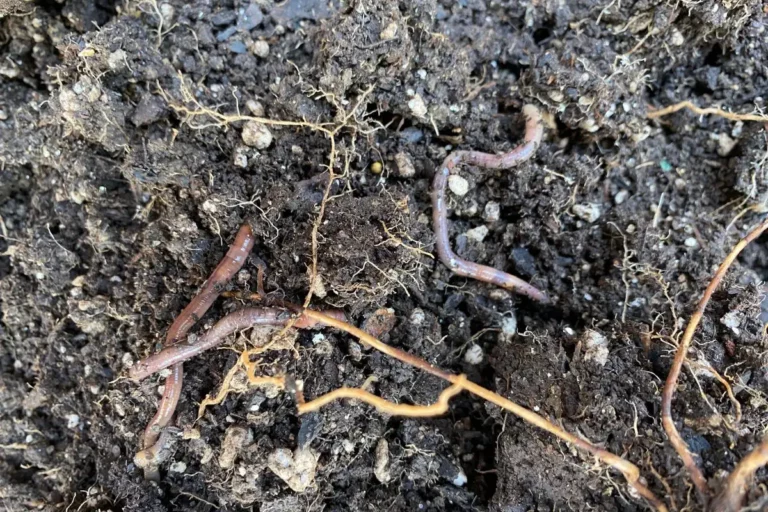Use Neem Oil to Stop Armyworms: Scientists Explain Why
If your garden plants have ever been torn up by armyworms, then you know firsthand what a nuisance they can be. These pests are the larval form of dullish brown moths, and although the moth is perfectly harmless in and around the garden, its larvae can be particularly destructive to both gardens and lawns.
One day, your garden looks amazing. The next day, there’s destroyed foliage everywhere, courtesy of these munching maniacs.
If you’ve had some success using neem oil on aphids, spider mites, and other garden pests, you might be wondering: Will neem oil get rid of armyworms?
Lucky for us, there’s good research on the subject, which makes it easy to clarify what exactly happens when you spray neem oil on armyworms.
Neem oil drastically increases armyworm mortality rates, killing off armyworms at all stages of egg and larval development in as little as 6-12 hours. It inhibits their ability to breath, and once ingested, it interrupts their life cycle, ensuring that armyworm larvae are unable to pupate.
The name “armyworm” is actually the name of several related species found in the order Lepidoptera. These insects have a total lifespan of roughly 1-2 months and spend around 2 weeks or so as larvae, so if you’re going to stop them with neem oil, you need to move quickly.
Once they begin pupating, they’ll likely be difficult to spot, and you’ll end up with quite a few adult moths, which can live for 1-2 weeks and lay hundreds (and sometimes thousands) of eggs during their short lifespan.
Now that you know what’s at stake, let’s take a quick look at the data to see what neem oil does to armyworms.
Does Neem Oil Kill Armyworms Naturally?
What I’m going to do below is to give you some quick insights into 3 related topics:
- some facts about neem oil usage and azadirachtin, its primary chemical component
- an overview of scientific conclusions regarding neem oil and armyworms
- some advice about how to use neem oil to kill armyworms
Neem oil is derived from neem trees (Indica azadirachta), which can be found in various Southeast Asian and African countries, and cold-pressed neem oil is the most potent form you can purchase these days, making it easy to mix a natural but highly effective insecticidal spray.
Containing 30+ naturally occurring chemical compounds, neem oil’s use as a natural insecticidal product is due to the efficacy of azadirachtin, one of its primary compounds. When ingested by plant-eating bugs, azadirachtin causes all kinds of hormonal and biological problems.
Neem oil typically takes 4-7 days to harm or kill most bugs. What’s interesting about neem oil is the fact that it can kill many invasive, destructive bugs, but it’s also mostly harmless when it comes to beneficial insects such as bees, butterflies, ladybugs, and parasitoid wasps.
Now let’s take a look at how neem oil impacts armyworms according to several scientific studies:
- In a study of beet armyworms, neem oil deterred both oviposition–the process of laying eggs on plants–and the feeding of armyworm larvae. Neem oil increased the mortality rates of armyworm eggs and killed off up to 61% of armyworm larvae.
- Another study looked at southern armyworms. The researchers concluded that neem oil reduced the lifespan of southern armyworm moths by up to 4 days and decreased their ability to reproduce. It increased the mortality of armyworm larvae and, most importantly, decreased their feeding activity by an incredible 96%.
- Examining fall armyworms, researchers concluded that neem oil had negative effects on fall armyworms, which was validated by another group of scientists who studied corn fields and confirmed that neem oil increased overall corn yields by increasing the mortality rates and reducing the feeding activity of armyworms.
- Recent research has shown that neem oil could result in 80-100% larval mortality rates in fall armyworms in as little as 12 hours.
- The most recent study I’ve seen revealed that 0% of both fall armyworms and velvet bean caterpillars were able to complete the larval cycle after exposure to neem oil, which is a stunning finding for those of us battling armyworm infestations.
According to these studies, neem does the following to armyworms:
- hinders the egg-laying process
- increases the likelihood that eggs won’t hatch
- decreases feeding rates
- increase crop yields due to decreased feeding rates
- increases mortality rates
- inhibits successful pupation
- decreases the lifespan of adult moths
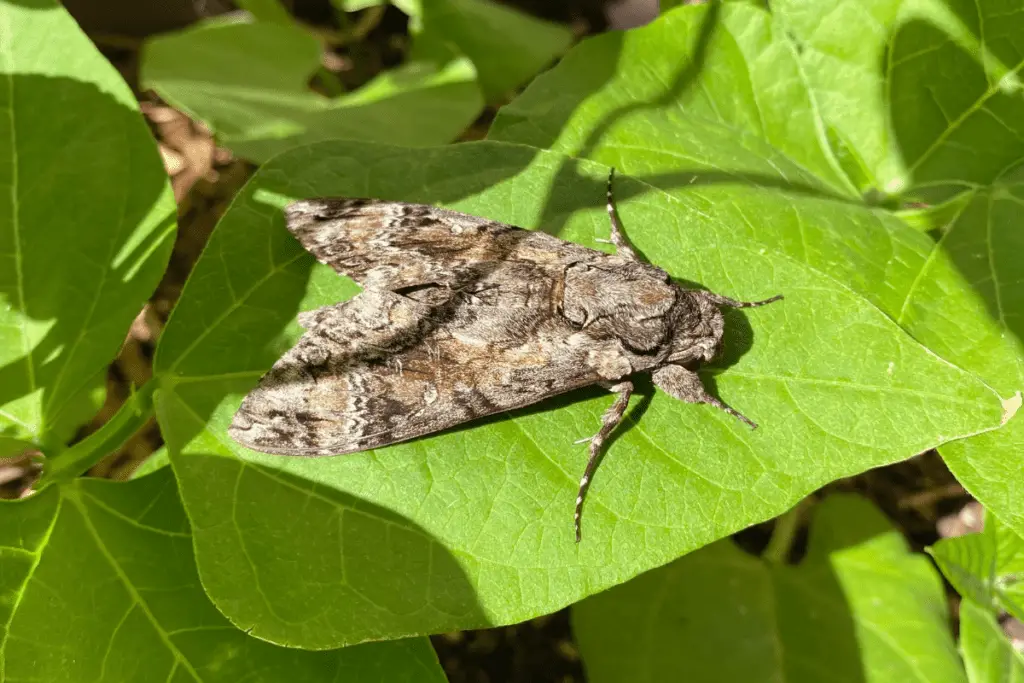
These are incredible findings given the destructive power of armyworms and the relative harmlessness of neem oil.
I’ll give a quick overview of my neem oil recipe below, but if you’d like to read all about how I make neem oil sprays and use them effectively, check out these articles:
- How Long Does Neem Oil Last? A Complete Shelf Life Guide
- Using Neem Oil on Tomato Plants: An Easy, Step-by-Step Plan
- 11 Proven Ways to Stop, Kill, and Get Rid of Spider Mites
Here’s my simple neem oil recipe:
- Step 1: Fill your garden sprayer with water.
- Step 2: Pour in organic liquid soap at a rate of 1 tablespoon per gallon.
- Step 3: Pour in neem oil concentrate at a rate of 2 tablespoons per gallon.
- Step 4: Shake well and apply to plants, making sure to spray the undersides of leaves.
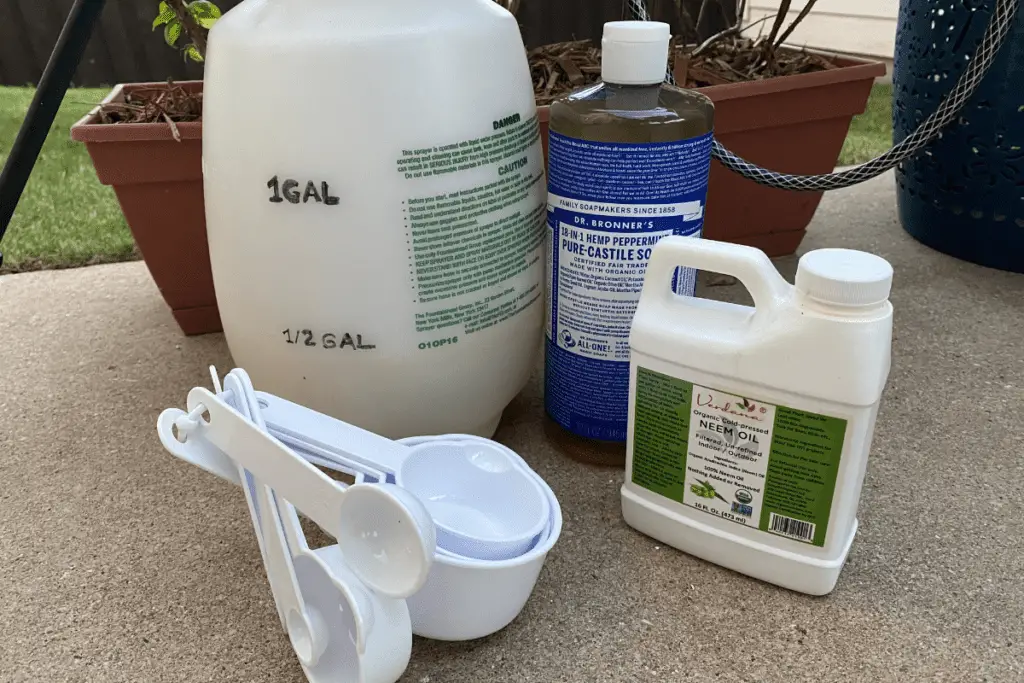
Neem oil doesn’t last long once it’s been diluted–and may quit working if you store it improperly–so be sure to use it all within an hour or so of mixing and store the bottle in an indoor, climate-controlled part of your house.
One word of caution: I wouldn’t use these scientific studies as a license to douse my armyworm-infested garden or yard in neem oil.
Neem oil is safe for vegetables, and if applied properly, you typically won’t need to wash it off. But you can overuse neem oil, which can potentially damage your plants and hurt some beneficial bugs (primarily lacewing larvae).
If you think you’ve sprayed too much neem oil on your property, follow these steps to wash some of it off and be sure to take care when harvesting fruits or veggies after you’ve sprayed neem oil on your plants.
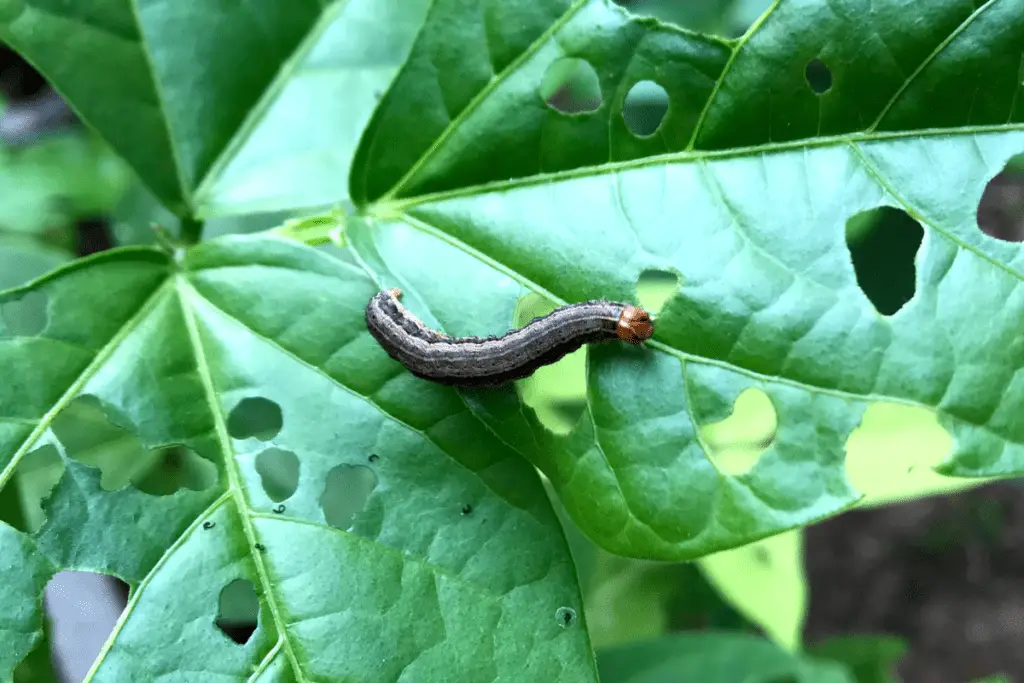
Can I Use Vinegar to Kill Armyworms?
Some bloggers recommend vinegar sprays in the garden–typically suggesting a spray that’s made of 1 part vinegar per 3 parts water–but in general, I don’t like vinegar sprays for 2 reasons.
First, vinegar is a less-than-effective product for killing insects naturally, so I’d prefer to use insecticidal soap and neem oil for my bug problems. I’ll even turn to Garrett Juice or liquid seaweed on occasion if I want to kill bad bugs while giving my plants a little boost.
Second, vinegar is an acidic, non-selective product, so some plants aren’t going to respond well to vinegar sprays. Unless I’m treating weeds, I generally avoid using vinegar in my garden, despite what various bloggers would have me believe.
Will Dawn Dish Soap Kill Armyworms?
Dish soap is a common addition to many natural garden sprays, and it’ll kill a wide variety of insects, from aphids to spider mites to whiteflies. But does it kill armyworms?
When diluted in water, a spray made with dish soap will kill armyworms if it’s sprayed directly on them, coating them in a soapy residue. Unlike neem oil, which causes hormonal and biological problems once ingested, soapy water sprays will only harm bugs on contact.
Dawn dish soap is technically okay to use in your garden, but it contains some grease-cutting chemicals that aren’t found in more natural liquid soaps. If you’re willing to spend a tad bit more, you should ditch Dawn and buy a better liquid soap, like the Dr. Bronner’s castile soap that I mentioned above.
You’ll pay a bit more, but in the end, you’ll be using the best product possible in your garden.
How Do I Get Rid of Armyworms in My Lawn?
In this article, I’ve been mostly focused on garden infestations, but armyworms are notoriously destructive when it comes to grass and lawns.
If you’ve got chickens, this is an easy fix. Simply find a way to let them loose in an armyworm-infested lawn, and they’ll have the grass picked clean in no time at all.
But for those of us who don’t have access to chickens, I think neem oil is the best approach for dealing with armyworm problems in your lawn.
Just be careful how you spray: Don’t simply cover your entire lawn in neem oil. Instead, do spot spraying so that you’re targeting the armyworms, not all of your grass. And only spray neem oil in the late afternoon or early evening–late enough so that you’ve missed the heat of day but early enough so that you still have full visibility.
Neem oil can burn plants if applied in the morning or during the hottest parts of the day, so I recommend always doing so once the sun starts to set to avoid unintentional lawn damage.
Want to Learn More About Neem Oil?
If you’re interested in learning more about neem oil, check out these articles for additional insights:
